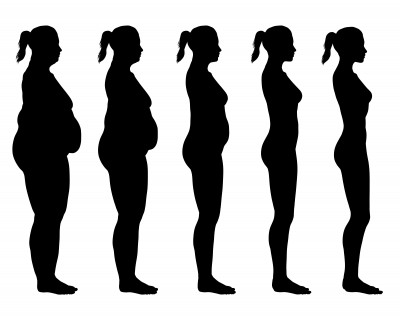Fact Check: Do Stressed-Out Men Really Prefer Curvier Women?
August 22, 2012 by Justin Lehmiller
A recent study looking at the types of women that men are attracted to during times of stress made huge international news this month. Among the many headlines I came across reporting on this study were “Stressed-Out Guys Prefer Chubbier Women,” “Stressed Men Prefer Big Ladies,” and “Men Prefer Fat Women When Under Stress.” To the casual observer glancing at these headlines, the logical conclusion would appear to be that when men get stressed, their ideal partner’s body type becomes much larger. But is this really the case? Not exactly. As you’ll see below, it’s pretty clear that most of the reporters covering this story didn’t even bother to consult the original source.
In this study, heterosexual male college students were either put in a stressful or non-stressful situation. In the stress condition, participants had to pretend they were interviewing for a job and were required to give a 5-minute speech to a panel of judges who would be evaluating them for the position. Upon completing their speech, participants were asked to count backward from 1,022 in increments of 13 as quickly and accurately as possible in front of the same judges. In comparison, the control participants simply had to wait quietly in a private room for the same amount of time. After this manipulation, all participants rated how attracted they were to a set of women that varied in body type, ranging from dangerously underweight to obese.
Results indicated that men in the stress group indeed gave “heavier” women higher attractiveness ratings than men in the control group. However, there are some very important caveats to this. First, the ideal female figure in the control group was underweight, while the ideal figure in the stress condition was somewhere between underweight and normal weight. Thus (and this I find rather depressing), stress simply led guys to prefer women who were closer to (but not quite) normal weight.
Second, the average attractiveness rating for overweight and obese female figures was low for men in both groups. Attractiveness was rated on a scale from 1 (very unattractive) to 9 (very attractive), which means that anything above a 5 is considered at least somewhat attractive and anything below a 5 is considered at least somewhat unattractive. For all men, the average attractiveness rating for each of the overweight and obese women was below 5. Thus, while stressed guys did indeed assign higher numbers to overweight women than guys in the control group, it wasn’t because they were rating these women as being more attractive, it was because they were rating them as being less unattractive.
As you can see, a closer look at the results reveals that most of the headlines about this study were just plain wrong. There is simply no evidence here that men prefer overweight women in times of stress. What this study does tell us is that stress indeed alters men’s perceptions of attractiveness to some degree, with their ideal female figure becoming a little heavier; however, stress does not appear to override socially and culturally ingrained ideals of female thinness.
I’ve said it before and I’ll say it again: don’t believe every sexy headline or news report you read.
Want to learn more about The Psychology of Human Sexuality? Click here for previous articles or follow the blog on Facebook (facebook.com/psychologyofsex), Twitter (@JustinLehmiller), or Reddit (reddit.com/r/psychologyofsex) to receive updates.
To read more about this research, see: Swami, V., & Tovee, M. J. (2012). The impact of psychological stress on men’s judgments of female body size. PLoS ONE 7(8):e42593.doi:10.1371/journal.pone.0042593
Image Source: 123rf.com
Related Article:

Dr. Justin Lehmiller
Founder & Owner of Sex and PsychologyDr. Justin Lehmiller is a social psychologist and Research Fellow at The Kinsey Institute. He runs the Sex and Psychology blog and podcast and is author of the popular book Tell Me What You Want. Dr. Lehmiller is an award-winning educator, and a prolific researcher who has published more than 50 academic works.
Read full bio >


